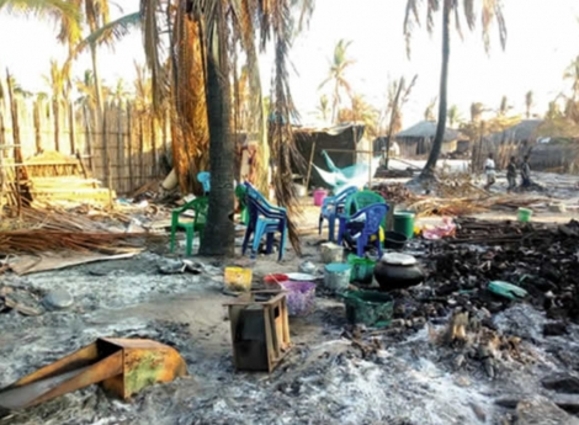In three years, this Mozambican province rich in natural gas and other minerals has been the target of several attacks by Islamic groups. It is important to understand the context of a war that has already killed more than 1000 people and displaced thousands
Where is Cabo Delgado? Cabo Delgado province is located in the extreme northeast of Mozambique. Its capital is the city of Pemba, located about 2,600 km north of Maputo. The province has an area of 82 625 km² and, in 2017, had a population of 2.3 million inhabitants. It is divided into 17 districts and has, since 2013, five municipalities: Chiúre, Mocímboa da Praia, Montepuez, Mueda and Pemba
What richness does this region have?
Cabo Delgado is rich in natural gas. It is the province where the largest total investment is being made in Mozambique, for the construction of the so-called “Cidade do Gás”, on the Afungi peninsula. An investment of US $ 125 billion [€ 115 billion] is expected up to the middle of this decade in natural gas exploration projects in the region. Multinationals such as the North American oil company Anadarko or the Eni consortium (Italian group) with the American Exxon Mobil and the Chinese CNODC – China National Oil and Gas Exploration and Development Corporation are on the ground.
When did the terrorist attacks start?
On October 5, 2017. It was the day of the first attacks by totally unknown armed groups in the province of Cabo Delgado. The targets were three police stations in Mocímboa da Praia. In total, five dead. The following November, several mosques were closed by order of the Mozambican authorities, who suspected that there had been meetings of armed groups there.
In three years, how many people died and were displaced?
More than a thousand deaths and thousands of displaced people have been recorded in the province of Cabo Delgado since October 2017. The first months of 2020 were marked by a series of rampant and increasingly violent attacks against entire villages, civilians, government buildings, of the Catholic Church and the various non-governmental organizations that have been operating on the ground for years and supporting populations, such as Doctors Without Borders.
What terrorist organizations are behind the attacks?
Islamic radicalization in northern Mozambique is said to have been operated with the support of more than one terrorist organization. A study indicated that insurgents are said to have been trained by armed militias in Congo, Kenya and Somalia, including the Al-Shabab group (an arm of the Islamic state). Some of the attacks have been claimed by Daesh or Islamic State. There are also suspicions of al-Qaeda’s involvement.
What was the most violent recent attack?
It was earlier this month when the village of Macomia suffered an attack that lasted three days and resulted in the looting of several commercial establishments, carried out by armed groups, allegedly from Daesh, who used people as shields. There have been reports of deaths of civilian adults and children, although there is still no official data. The Médecins Sans Frontières center in Macomia was destroyed, prompting the NGO to leave the region. Terrorists have cut communications in the region.
Were there attacks targeting specific groups?
Yes. On April 8 of this year in the village of Xitati, armed militias executed 52 youths who refused to join their ranks and be radicalized. The young men were massacred, many of them beheaded and shot dead.

What reasons are behind the attacks?
Islamic radicalization in Cabo Delgado province and jihad (holy war) has taken advantage of extreme inequality in the region. The province is one of the richest in the country but its resources are exploited by multinationals while the population lives in poverty, without access to education, health care and work. They are not even allowed to cultivate the land, expelled from the vast expanses of territory granted to oil companies. The preachers of Islamic fundamentalism saw there a fertile ground for its expansion, blaming Frelimo for the appropriation of the region’s resources, in its favor and that of the multinationals.
Are the Armed Forces responding to the attacks?
Yes, they have been killing hundreds of terrorists over the course of three years, but it cannot be said that they are winning the war. On the last Sunday of May, the Minister of National Defense, Jaime Neto, announced that the Defense and Security Forces killed 78 terrorists, including two heads, from Tanzania, because of the siege of the village of Macomia. The official also revealed that another 60 insurgents were injured.
What position does President Nyusi take?
The President of Mozambique, Filipe Nyusi, recently assumed and for the first time the involvement of the country’s military elites in deadly attacks that until now have been officially attributed to faceless armed groups. “Mozambicans will not repeatedly tolerate the blackmail of cyclical warfare by groups of individuals manipulated to sustain the ego of internal and external elites,” said Nyusi.



